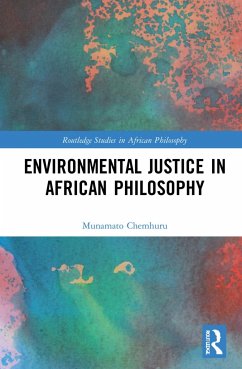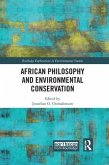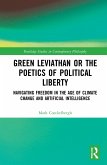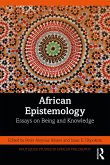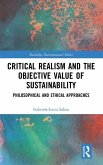This book focuses on environmental justice in African philosophy, highlighting important new perspectives which will be of significance to researchers with an interest in environmental ethics both within Africa and beyond.
Drawing on African social and ethical conceptions of existence, the book makes suggestions for how to derive environmental justice from African philosophies such as communitarian ethics, relational ethics, unhu/ubuntu ethics, ecofeminist ethics and intergenerational ethics. Specifically, the book emphasises the ways in which African philosophies of existence seek to involve everyone in environmental policy and planning and to equitably distribute both environmental benefits (such as natural resources) and environmental burdens (such as pollution and the location of mining, industrial or dumping sites). This extends to fair distribution between global South and global North, rich and poor, urban and rural populations, men and women and adults and children. These principles of humaneness, relationships, equality, interconnectedness and teleologically oriented existence among all beings are important not only to African environmental justice but also to the environmental justice movement globally.
The book will interest researchers and students working in the fields of environmental ethics, African philosophy and political philosophy in general.
Drawing on African social and ethical conceptions of existence, the book makes suggestions for how to derive environmental justice from African philosophies such as communitarian ethics, relational ethics, unhu/ubuntu ethics, ecofeminist ethics and intergenerational ethics. Specifically, the book emphasises the ways in which African philosophies of existence seek to involve everyone in environmental policy and planning and to equitably distribute both environmental benefits (such as natural resources) and environmental burdens (such as pollution and the location of mining, industrial or dumping sites). This extends to fair distribution between global South and global North, rich and poor, urban and rural populations, men and women and adults and children. These principles of humaneness, relationships, equality, interconnectedness and teleologically oriented existence among all beings are important not only to African environmental justice but also to the environmental justice movement globally.
The book will interest researchers and students working in the fields of environmental ethics, African philosophy and political philosophy in general.
"In this book Chemhuru ably articulates the bearing of African philosophies on environmental justice. His book will be essential reading for Africans concerned about how their traditions can motivate and underpin environmental equity, and worldwide for all who seek to discover what can be learned about relations between genders, classes, cultures and generations from the continent where humanity first evolved."
Robin Attfield, Professor Emeritus of Philosophy at Cardiff University, Wales, UK.
"Here comes a resourceful publication on environmental justice with convincing arguments and illustrations on why and how everyone is a stakeholder in the project and must be involved in achieving environmental justice for mankind. It deserves global attention."
Lawrence Ogbo Ugwuanyi, Professor of Philosophy, University of Abuja, Nigeria.
Robin Attfield, Professor Emeritus of Philosophy at Cardiff University, Wales, UK.
"Here comes a resourceful publication on environmental justice with convincing arguments and illustrations on why and how everyone is a stakeholder in the project and must be involved in achieving environmental justice for mankind. It deserves global attention."
Lawrence Ogbo Ugwuanyi, Professor of Philosophy, University of Abuja, Nigeria.

